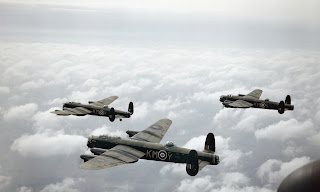by Hanya Yanagihara (2015)
I finished this book a couple of weeks ago and it's taken me quite a while to get around to writing anything about it. This is not because there's nothing to say about it, but rather that there's so much I could say, that I'm struggling to know where to start... Let's start with this: A Little Life is an absolute masterpiece. It will suck you in so that you stay up late at night reading. It will make you feel like you know the characters, like they are your friends, like you understand them - then it will tear out your heart, throw it on the floor and jump up and down on it so that you're sobbing in a corner. This will not be subtle crying; this is not eyes-welling-up-a-bit territory. This is soul-destroying, snot-nosed, making awful noises, rocking in a corner crying. Consider this fair warning.
A Little Life is beautiful, surprising, insightful , powerful and absolutely devastating.
 |
| This kind of crying. Do not read this book on public transport. |
Seemingly at random, the narrative moves back and forward in time, slowly adding layer upon layer to each of the characters, especially Jude. The tense changes as well - sometime past, sometimes present - so that it's never quite clear when the story is being told from. Not only that, but the narration switches between different characters' points of view and even between first-person, third-person and even second-person narrative ("Ah, you tell yourself, it's arrived. Here it is. And after that, you have nothing to fear again"). This sounds like a messy, confusing tangle of crazy but it's not - it's so masterfully done that you don't even notice what's happening with the narrative because you're so caught up in the story and the characters.
 |
| Hanya Yanagihari - so very good at what she does. |
The storyline of A Little Life would be easy to scoff at. Jude's childhood is so awful, the abuse he's subjected to so completely abhorrent that it would be easy to brush off as over-dramatic. In adulthood, things take a turn for the overwhelmingly positive with Jude and his friends becoming, rich, successful, famous... Is it realistic? Probably not. Does it matter? Not in the slightest. The novel works beautifully and the relationships at the heart of it all are wonderfully written.
In parts, A Little Life is a touching celebration of the importance of friendship: "Wasn't friendship its own miracle, the finding of another person who made the entire lonely world seem somehow less lonely?". The relationships between Jude, Willem, Malcolm and JB are heartfelt, nuanced, unique and so very believable. Each of the characters is so complex and well-detailed that you really do feel like they're real people with real thoughts and ambitions and experiences, none more so than Jude himself.
Jude is intelligent and sweet and earnest and so very broken. As a reader, seeing Jude through his friends' eyes it's so clear and easy to see why they all love him; from Jude's point of view though, it's also easy to see why he finds this impossible to understand. This is a man struggling to make a life for himself after being almost destroyed by events he should never have had to live through. All you want for Jude is for things to go well, and for him to believe that he deserves it.
 |
| Jude, Willem, Malcolm & JB. Like this, but more multi-cultural and fifty years younger. |
I guess that's my main takeaway from this book - it stays with you. It affects the way you look at people and the way you look at life. It's sweet and beautifully-written and heart-warming and heart-breaking all at the same time. Nominated for the Man Booker prize this year, A Little Life absolutely deserves to win.
10/10















